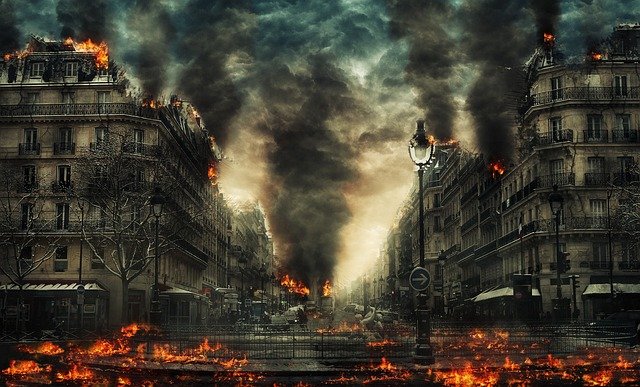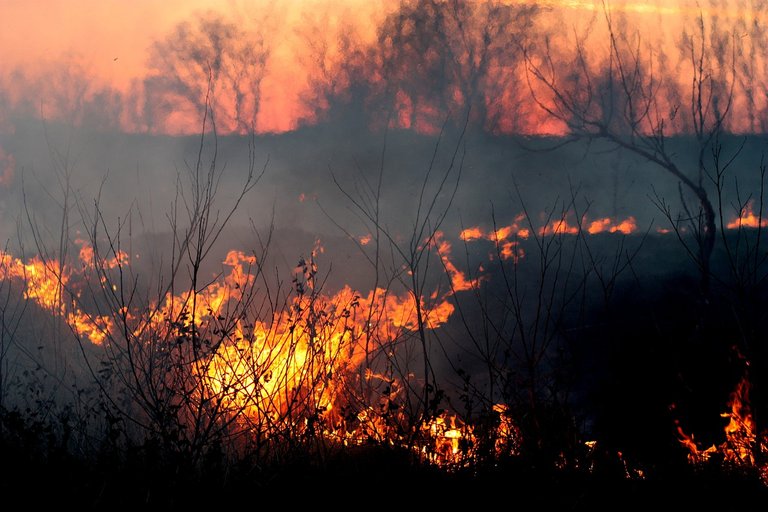Natural disasters are a growing crisis. Natural disasters have long been a part of human history, devastating communities and leaving millions dead. However, in recent times, the frequency and intensity of these events have increased, resulting in natural disasters that have become unprecedented in the peace and tranquilly of the world. Catastrophic events such as hurricanes, earthquakes, floods, and forest fires have occurred.
Forced to flee their homes due to climate change, these people face unique challenges and vulnerabilities. This blog highlights the plight of natural disaster response efforts to prepare for the impacts and potential precautions against the growing crisis.Increasing incidence, frequency, and intensity of natural disasters Climate change is a major reason behind the increasing incidence and severity of natural disasters.
The rise in temperatures has led to more frequent and extreme weather events such as hurricanes and typhoons that bring destructive winds and torrential rain. Such prolonged droughts and extreme heat waves have increased the risk of wildfires. These events not only cause immediate destruction but also create long-term climate change that renders some areas uninhabitable, forcing residents to seek shelter elsewhere.
Apart from climate change, other factors such as urbanisation and deforestation increase the impact of natural disasters. As more people move to urban areas, the population increases, which leads to the spread of pollution. Evacuation and relocation of increasing numbers of people during emergencies become more challenging. On the other hand, deforestation destroys land and economic status.
The area where nature becomes more sensitive and the adverse effects of these actions create a greater storm, which kills millions of people worldwide. Human Start Type Natural Disaster Phases Challenges Faced by Women The journey through natural disasters is full of many difficulties. In the beginning, the situation immediately after the disaster and the menstruation and.It can be dangerous; many people lose their home, respect, and even the respect of others, due to which they feel more protected by everyone.
Shivam water, food, and. Access to basic necessities such as medical care now becomes a critical issue. Temporary shelters, which are often too crowded and poorly equipped, offer very little comfort or security; e.g., refugees move to safer areas. They face additional challenges. Also established near existing ones.Host communities may lack the resources to accommodate the creativity of displaced people, leading to strain on local services and tensions between residents and people.
Opportunities are few, making it difficult for refugees to find work and rebuild their lives. In addition, the psychological impact of displacement can be profound, with many suffering from PTSD and other mental health problems for years to come. Suffers from health problems. Natural disasters cross borders and affect many countries. It affects. How can the nature of natural disasters be reduced and enhanced by sharing knowledge, mobilisation, and sustainable development? What is the need for a multi-faceted strategy to reduce the number of natural disasters and their suffering? Creating resilience in vulnerable areas is an important strategy.
It requires large-scale disaster preparedness for the residents. I include educating, improving infrastructure, and promoting sustainable development practices. Local disasters can make the community more alert to its residents and reduce their burden of pollution. Climate change awareness is another important event. Reducing emissions such as greenhouse gas emissions and changing climate change environments can help slow down the effects of climate change and reduce the intensity and severity of natural disasters.
Agreements such as the Paris Agreement and the Australia Agreement are necessary steps to take action on climate change. How can more charitable causes and human efforts help reduce the effects of natural disasters such as hurricanes and storm surges?The increasing number of natural disasters is a stark reminder that there is an urgent need to address the internalisation of displacement and improve our response to natural disasters. The nature of immediate humanitarian assistance, such as MANU, is vital. Governments, international crises, maritime, and maritime an educated and.More donors must work together to make the world fair for all. By taking action now, we can reduce the impact of natural disasters and ensure that fewer people are forced to flee their homes in search of safety.
This is my participation post for Initiative #julyinleo
Posted Using InLeo Alpha


